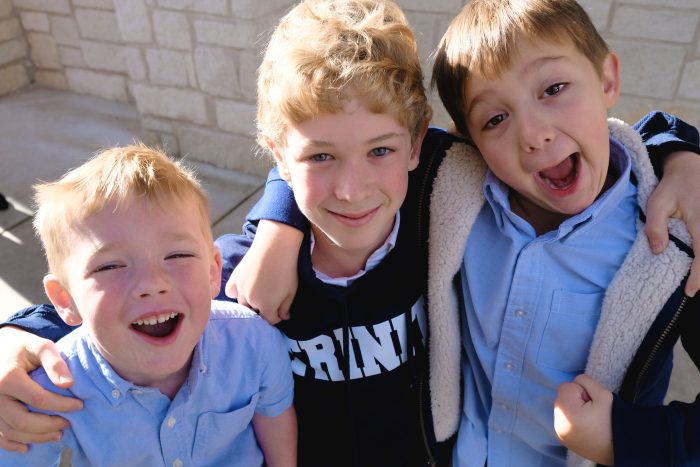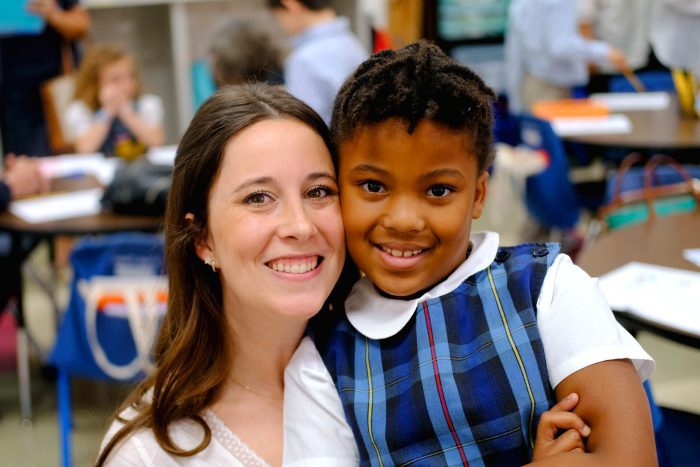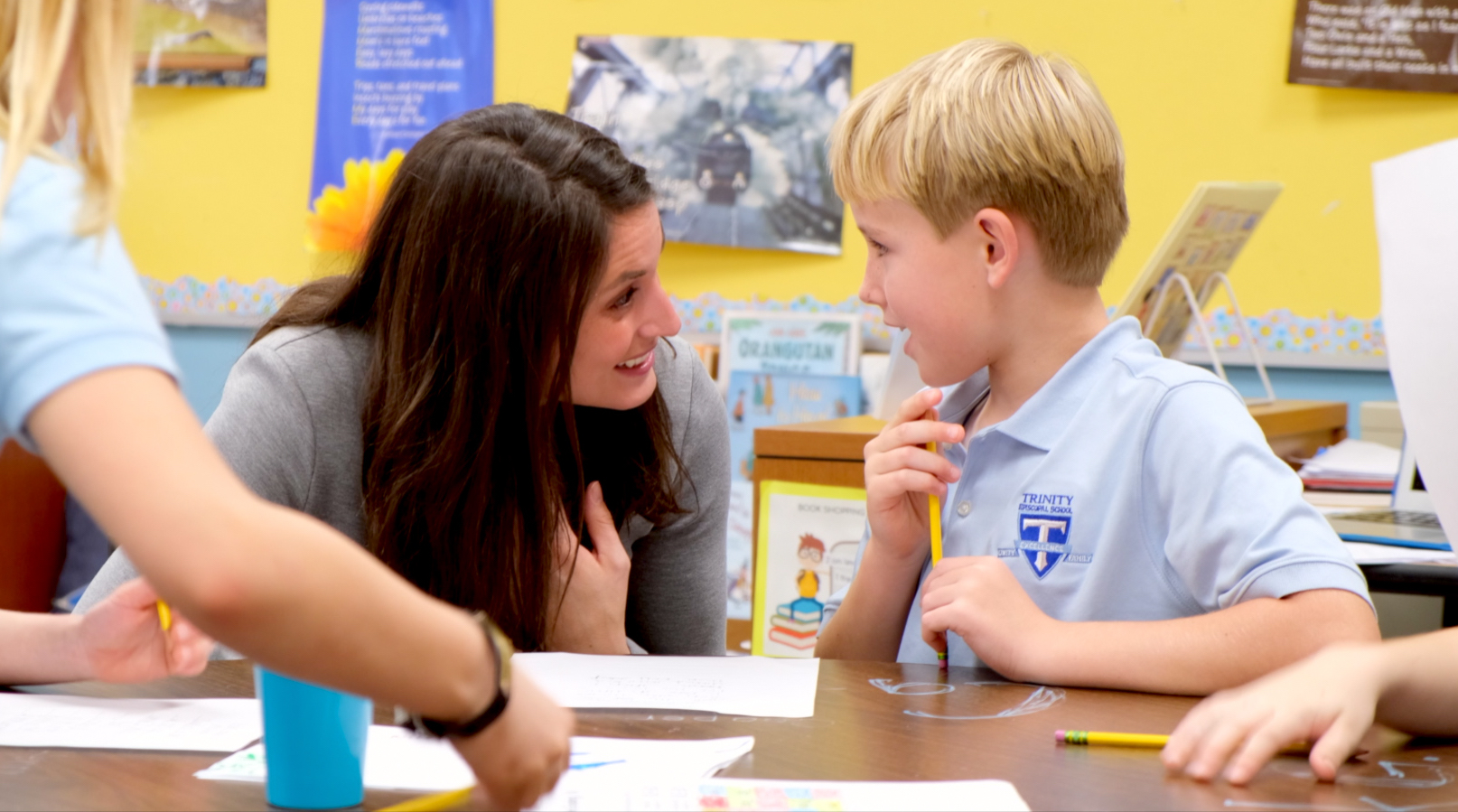No instructions included. It’s a cliche about parenting, but it’s so true, right? Every child is unique. Even siblings, who share about 50% of the same DNA, can be dramatically (and beautifully) different. Shouldn’t a school be built with that in mind? Here are the top 5 factors that impact student success from Trinity Episcopal School of Austin.
 “There were so many great options in Austin, but we didn’t really know what we wanted,” said Candace L. She was researching kindergartens for her son, Cole. “So we toured 11 schools to try to learn what was important to us. We looked at public, parochial, charter — kind of the whole gamut — and we fell in love with Trinity Episcopal School instantly. We were blown away at the tour, and those expectations have been continually exceeded.”
“There were so many great options in Austin, but we didn’t really know what we wanted,” said Candace L. She was researching kindergartens for her son, Cole. “So we toured 11 schools to try to learn what was important to us. We looked at public, parochial, charter — kind of the whole gamut — and we fell in love with Trinity Episcopal School instantly. We were blown away at the tour, and those expectations have been continually exceeded.”
So what does Trinity Episcopal School of Austin do that sets students up for success? Here are the Top 5 factors that unleash student potential and develop a real love of learning.
 1. Personalized Attention
1. Personalized Attention
Perhaps the most compelling thing about Trinity is how well teachers know their students. Every Lower School homeroom has two teachers, supported by a large team of learning specialists and staff members. Having a group of instructors keeps the student-teacher ratio low (about 7:1) and creates plenty of opportunities for differentiated instruction, so faculty can meet every child where they are. Teachers don’t just know the 20 kids in their classroom. They strive to know every child in their division by name — about 300 students in Lower School! Knowing all students improves collaboration across grade levels, ensuring no child can ever slip through the cracks.
Trinity’s data response teams (DRTs) track up to 52 competencies (31 academic, 21 behavioral) and more than 20 national benchmarks for each student. This team of experts analyze the data within the context of each child’s specific learning profile and use it to shape the educational journey. Data doesn’t tell the whole story. Faculty also use written comments to document a child’s progress in each course.
 2. Supportive Community
2. Supportive Community
A well-rounded education goes beyond academics and includes building community, developing emotional intelligence, and encouraging service to others. Trinity offers many opportunities to practice leadership, mentorship, and community service. These programs help students learn how to serve others and connect to their broader community. For adults, there are more than 200 ways to volunteer. One of Trinity’s core values is “Family Commitment,” and the school strongly encourages parent involvement.
Trinity hosts community events and strategically invests in campus additions and improvements that help bring people together. For example, the school is constructing a new building that increases indoor learning spaces by 31 percent. The 32,000-sq.-ft. building includes a second gymnasium and black box theater, and it has created the possibility of renovating existing spaces like student common areas.
 3. Adaptable Curriculum
3. Adaptable Curriculum
Education shouldn’t be a one-size-fits-all endeavor. Trinity is committed to providing the resources it takes to adapt the curriculum to each student. Along with “anchor” curricula in all subjects, teachers have a lot of agency to develop responsive lesson plans with their students in mind. The class has the space to follow their curiosity more organically and dive into hands-on, real-world experiences. An entire class period for differentiated and blended learning is built into the regular school day, starting in 1st grade. Students can stretch themselves in areas where they excel or focus on areas where they need a little help. They learn in small groups and progress at a level that’s right for them.
 4. Enriched Academics
4. Enriched Academics
Trinity is a nurturing environment where kids can be themselves and try new things. There are dozens of extracurricular clubs and activities, from robotics to Model UN to songwriting. The Athletics program has a no-cut policy and offers team sports starting in 1st grade, so students can find a team appropriate for them. The variety of activities gives kids agency in their experience, and each enrichment opportunity is a chance to stoke curiosity, form friendships, and build confidence.
 5. Innovative and Proven Practices
5. Innovative and Proven Practices
Trinity considers national standards and benchmarks, but as an independent school, teachers aren’t restricted by complying with state mandates or teaching to a test. Trinity aims to be forward-thinking, not experimental, with a curriculum built on reliable evidence and proven best practices. Faculty and staff can stay ahead of the curve because Trinity prioritizes investment in professional development. In a typical year, the school budgets over $250,000 for programs, workshops, and conferences. That investment cultivates a culture of lifelong learning.
Researching and comparing schools can be overwhelming: public vs. private, charter vs. traditional, parochial vs. independent, day vs. boarding, etc. You can easily run the risk of paralysis by analysis! But any school like Trinity that prioritizes the above factors is a great option to give your child the best education possible.
RELATED READING :: Guide to Photographers in Austin
About the Author :: Trinity Episcopal School is an independent, co-ed, PK–8 day school in Austin, Texas. Learn more and see admission events at www.austintrinity.org/










